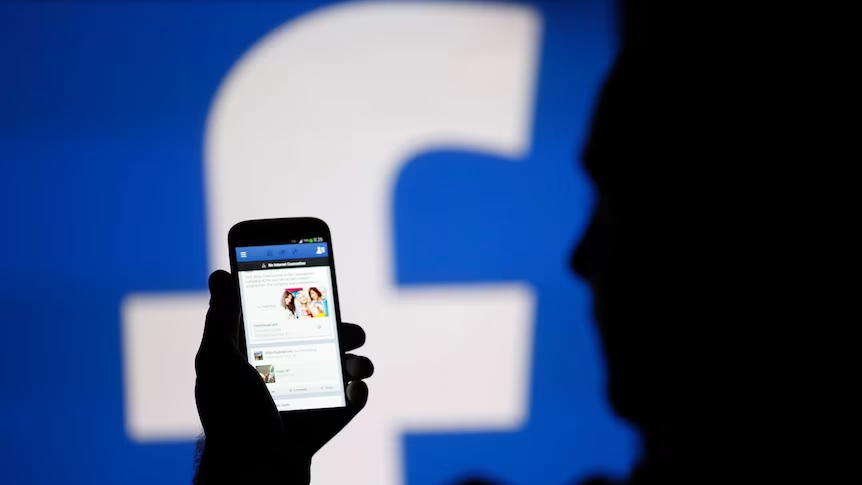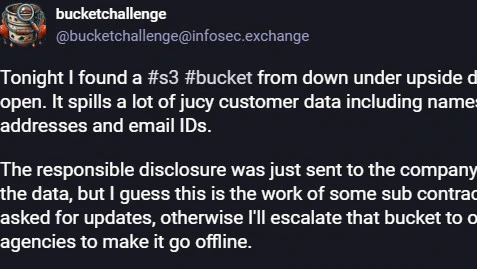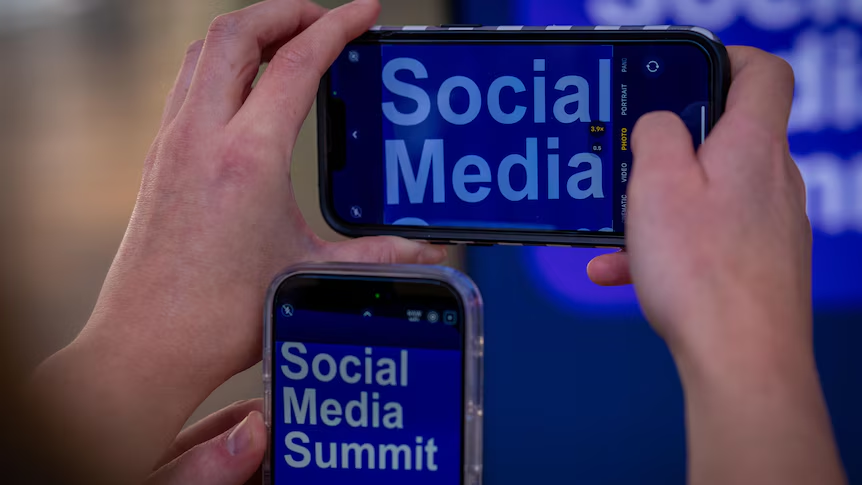
Do you find that at some point, the media has become an indispensable medium in public relations? It moves between citizen’s lives and companies, sometimes playing the role of an expositor, and sometimes dragging people’s privacy into trouble.
Introduction
Privacy issues has been widely debated by the public. Due to the development of modern technology, social media and companies have successively launched various services, but requiring users to provide some privacy Information to get them. According to Flew, the data provided by the people to the platform is of great value, the medium will have the ability to resell those personal Information to third party through this way. Or perhaps it is because of their inadequate data security protection measures that citizens’ private Information could be easily affected. Otherwise, due to users’ lack of experience of privacy settings, it is difficult for the public to edit their own privacy setting(Rahman, 2023).
Social media is important because to a certain extent, it determines what kind of content could be displayed to public(Nicolas P, 2019, pp. 10–24). Media could play a complex and flexible role on the issue of privacy, it is both a potential risk of privacy leakage and a protector that helps to defend citizens’ privacy rights. The dual identity reflects the complexity of interest relations in society.
Case Study: Nine newspapers subscribers are suffering from the issue id privacy exposure
Nine newspapers has a large number of subscribers, so its database contains a lot of users’ private information. In March 2025, due to a third-party supplier being hacked, those data was exposed on the Internet.

Modern media companies will enhance their databases by collecting users’ Information to operate digital marketing business. At the same time, for commercial purposes, user experience upgrades and data analysis, media companies will cooperate with third-party platforms.

In March 2025, a user claimed to have discovered a data leak in the cloud and attempted to alert the company to this matter(Figure 3). Including 3 paper, The Sydney Morning Herald, The Age, The Australian Financial Review, they are facing the problem of user privacy data leakage.
Regarding the types of leaked data, it includes subscribers’ names, mailing addresses and email addresses . Information of approximately 16,000 subscribers was exposed(Alexiou, 2025).
Data leakage has been a persistent crisis that the public faces in today’s digital society. Cybercriminals often obtain citizens’ private Information and data stored in various organizations through some cyber attacks(Ruohonen et al., 2024). There are many ways that can lead to data leakage and subquently pose privacy risks, including human factors or some technical issues. Due to the advanced modern technology, more leakage accident occur through software bug, and cybercrime is also associated with this.
According to relevant staff, the data leakage in this Nine newspaper incident was due to unauthorized changes, the failure to effectively protect personal information held by third-party suppliers, as well as the negligence and inexperience of researchers(Kirk, 2025).
Recent research shows that the majority of the citizens tend to set their social media accounts to private mode, and more than half of them will try to find the advanced privacy settings of the system to protect their privacy and security(Suciu, 2020). This also indicates that people want to enhance their control over their privacy settings. However, more and more media platforms require users to exchange some private and personal Information for the resources and services in platforms, and those private information is often stored in the cloud.
For instance, industry giant Amazon is attempting to launch a new smart device, but this decision is also gradually phasing out a privacy feature. They have moved the option for the records not to be transmitted to the cloud for processing, which means that people’s privacy issues will once again be challenged(Gallop, 2025). Those concerns stem from the uncontrollability of cloud computing. Cloud services suppliers have control over the data and they can perform any operations on it, which leads to multiple security issues, such as the possibility of active malicious destruction by human beings or passive attacks. Even with the support of encryption technology, users’ personal information is still vulnerable to security threats(Vurukonda & Rao, 2016).
Nine newspapers incident was an example of cloud services security. Due to the unexpected factor, those data stored in media or platforms may be stolen by criminals. Some vicious incidents always happen, like National Public Data incident. The data leakage incident of the National Public Data made a large number of public’s private information being sole on the dark web. And the citizen information collected has put citizens at risk of identity theft(Alger, 2024). The instability of media often leads to such privacy leakage incidents, and citizens’ legitimate rights and interests could not be effectively protected. It works as a catalyst between citizens and enterprises, and couldn’t guarantee the complete confidentiality of personal privacy.
Case Study: The escalation of the Medibank incident

Australia’s largest private health insurer, Medibank, was hacked in 2022, resulting in the privacy of 9.7 million customers being compromised(Terzon, 2022). In fact, there is a certain risk in storing private information in an organization or company. Once leaked, is poses a significant social challenge to the organization itself. It will include customers’ private information, which not only leads to internal problems within the organization but also affects individual citizens and social stability(Nuha Abdul Molok et al., 2018).
News reporters rarely reported about social panic, it may be the encouragement for initiators. When ABC News posted this Medibank incident to public, they need to do their best to avoid addressing the moral boundaries of this affair and not to go deep into the worst case(Terzon, 2022). They made the Medibank incident public because the public needs to understand the current situation of cybercrime and remind citizens of the insufficiency of social governance in privacy security, and enhancing their own prevention.
For public, a madam from a Home Hospital said that she felt very sympathetic and concerned for the patients whose information was leaked, and she was also very disappointed at the exposure of data(Fedorowytsch, 2022). The media reported this incident to society, which to a certain extent reflects the media’s cautious attitude in dealing with sensitive issues. It provides an auxiliary role for citizens’ right for privacy as well.
The different performances of the media in social privacy matter

According to the research, media works differently when facing various situations, which will deeply influence the thoughts and actions of the public.
The Negative Aspect
Media has become a vital aggregator of social resources, whether in form of platforms or companies. They have the ability to obtain some of the public’s private data and exchange it for certain services for users. With those data, they can easily influence the emotions and thoughts of the public on social media.
Due to the extensive collection of personal information, people are likely to pay more attention on this issue because some of the companies will affect public’s privacy(Ho et al., 2023). While citizens are trying to balance their control over privacy, whether they grant power to the media is another issue.
FTC staff have reported that Americans’ personal data are collected by some media companies to gain benefits, and they didn’t react to the request from users to delete their private information. Those data poses a threat to users’ privacy(Kern, 2024).
The Positive Aspect
Meanwhile, the development of modern society depends on the media. It accelerates social change, and the rise if social networks has greatly influenced the transformation of social structure. As a medium, the media rapidly spreads and amplifies the information, which is conducive to the dissemination of favorable narratives(Obaid, 2020).
Different media have their own perspectives towards the same event, and these perspectives will influence the audience groups corresponding to the media and even the public. The tone they adopt and the content they choose to emphasize will deeply affect users’ views(Mercea & Iannelli, 2016).
With this feature, media could access to the news much earlier, especially for some giant social issues, they could give the fast feedback to the public and make people know the affair better, working as a path for the exposure of social events.
How to Govern the Media in Society?
The media has a tendency to encourage online abuse on today’s society. How to properly govern the media has become a common issue around the world(Higson-Bliss, 2024). The Internet needs to be more effectively regulated to make it safer, while factors like citizens’ freedom of speech also need to be taken into consideration(Belot, 2021).
Government should take the responsibility to regulate media. Scott Morrison thought that laws about media need to be revised, and the harm caused to the public by media platforms needs to be curbed. Once regulation is beneficial, the citizens will also be glad to see it(Attwood & Williams, 2021). The Online Safety Act is a law drafted by Australia in response to cyber security. It aims to create a secure framework, especially to protect children and youth(Tay & Pearce, 2024). However, evidence shows that the internet is bypassing regulation and creating bugs. Government need to update laws to promote the governance of digital media(Belot, 2021). Media enterprises need to have a consultative relationship with government departments. To moderate intervention is beneficial to both national interests and the interests of the platforms(de Kloet et al., 2019).
The media has a dual nature. It is a force driven by the economy and may become a tool for interest. Government regulation needs to be combined with self-regulation of the platform to promote a better social environment(Cusumano et al., 2022). For platform governance, on Tik Tok platform in China, the social media itself has established rules and policies, managing the content creators on it. Human intervention in involved in regulating the digital media field(Ye et al., 2024).
The government could also change its strategy and focus on supervising the self-regulation of social media companies. Government intervention should enable companies to regulate their own operations(Cusumano et al., 2022).
Conclusion
The media plays a dual role in privacy issues. It could act as an expositor of problems, promoting transparency and openness of public information, but it could also serve as a catalyst for privacy issues, leading to the leakage of personal information. In most situations, the media works as a supervisor of public opinion. To a certain extent, it has improved the exposure of actions that infringe upon the public’s rights to privacy, and raised public awareness of privacy. This often helps to promote the renewal and development of national policies. In some perspectives, it also works as an invader of privacy. Some media organizations are prone to being lured by profits and selling the private information of the public, or using the collected user information for advertising to gain economic benefits. No matter what role the media plays in social life, both government departments and media companies themselves need to further regulate it. Digital governance is not a unilateral action but the result of joint efforts.
References
Alexiou, I. (2025). channelnews : Nine Reviews Data Security After Breach Exposes 16,000 Subscribers. Channelnews.com.au. https://www.channelnews.com.au/nine-reviews-data-security-after-breach-exposes-16000-subscribers/
Alger, J. (2024, August 21). Security leaders discuss the National Public Data breach. Securitymagazine.com; Security Magazine. https://www.securitymagazine.com/articles/100951-security-leaders-discuss-the-national-public-data-breach?
Attwood, A., & Williams, C. (2021, October 9). Deputy Prime Minister Barnaby Joyce says the government is not joking over plans to regulate social media. Abc.net.au; ABC News. https://www.abc.net.au/news/2021-10-10/joyce-says-government-not-joking-over-plans-to-regulate-social/100526516?utm_campaign=abc_news_web&utm_content=link&utm_medium=content_shared&utm_source=abc_news_web
Belot, H. (2021, October 21). Facebook whistleblower Frances Haugen tells Australian politicians to regulate social media or be ignored. Abc.net.au; ABC News. https://www.abc.net.au/news/2021-10-21/facebook-whistleblower-tells-politicians-to-partner-with-us/100556252?utm_campaign=abc_news_web&utm_content=link&utm_medium=content_shared&utm_source=abc_news_web
Cusumano, M. A., Yoffie, D. B., & Gawer, A. (2022, January 3). Pushing Social Media Platforms to Self-Regulate | The Regulatory Review. Www.theregreview.org. https://www.theregreview.org/2022/01/03/cusumano-yoffie-gawer-pushing-social-media-self-regulate/
de Kloet, J., Poell, T., Guohua, Z., & Yiu Fai, C. (2019). The plaformization of Chinese Society: infrastructure, governance, and practice. Chinese Journal of Communication, 12(3), 249–256. https://doi.org/10.1080/17544750.2019.1644008
Fedorowytsch, T. (2022, October 27). Medibank breach leads to South Australia’s My Home Hospital program patients’ information being accessed. Abc.net.au; ABC News. https://www.abc.net.au/news/2022-10-27/my-home-hospital-program-in-medibank-breach/101586570?utm_campaign=abc_news_web&utm_content=link&utm_medium=content_shared&utm_source=abc_news_web
Gallop, J. (2025). channelnews : Amazon Unveils New Premium Alexa+ Devices Amid Privacy Concerns. Channelnews.com.au. https://www.channelnews.com.au/amazon-unveils-new-premium-alexa-devices-amid-privacy-concerns/
Ho, F. N., Ho-Dac, N., & Huang, J.-H. (2023). The Effects of Privacy and Data Breaches on Consumers’ Online Self-Disclosure, Protection Behavior, and Message Valence. SAGE Open, 13(3). sagepub. https://doi.org/10.1177/21582440231181395
Holder, S. (2024, October 13). A summit brought together experts, government and teenagers to talk about social media’s impacts and a proposed ban. Here’s what happened. Abc.net.au; ABC News. https://www.abc.net.au/news/2024-10-14/social-media-summit-explained/104464362?utm_campaign=abc_news_web&utm_content=link&utm_medium=content_shared&utm_source=abc_news_web
Kern, R. (2024, September 18). FTC Staff Report Finds Large Social Media and Video Streaming Companies Have Engaged in Vast Surveillance of Users with Lax Privacy Controls and Inadequate Safeguards for Kids and Teens. Federal Trade Commission. https://www.ftc.gov/news-events/news/press-releases/2024/09/ftc-staff-report-finds-large-social-media-video-streaming-companies-have-engaged-vast-surveillance?
Kirk, E. (2025, March 27). “Juicy customer data” leaked from Nine. News; news.com.au — Australia’s leading news site. https://www.news.com.au/technology/online/security/juicy-customer-data-belonging-to-thousands-of-aussies-leaked-from-nine/news-story/ea3e93e6d543d677dd810589ad993af2
Mercea, D., & Iannelli, L. (2016). Media, Participation, and Social Change: Introduction to the Special Section. Social Media + Society, 2(3), 205630511666239. https://doi.org/10.1177/2056305116662398
News, A. (2023, January 15). Three class action firms join forces to litigate Medibank breach. Abc.net.au; ABC News. https://www.abc.net.au/news/2023-01-16/class-action-firms-probe-medibank-breach/101857682?utm_campaign=abc_news_web&utm_content=link&utm_medium=content_shared&utm_source=abc_news_web
Nicolas P, S. (2019). Lawless: The Secret Rules That Govern Our Digital Lives (pp. 10–24). Cambridge University Press.
Nuha Abdul Molok, N. N. A. M., Ahmad, A., & Chang, S. (2018). A case analysis of securing organisations against information leakage through online social networking. International Journal of Information Management, 43. https://doi.org/10.1016/j.ijinfomgt.2018.08.013
Obaid, H. (2020, April 14). The Impact of Social Media on Social movements and public opinion formation. https://www.researchgate.net/publication/356289366_The_Impact_of_Social_Media_on_Social_movements_and_public_opinion_formation
Pengilley, V. (2025, March 27). Nine newspapers subscribers have data exposed online in breach. Abc.net.au; ABC News. https://www.abc.net.au/news/2025-03-27/data-16000-nine-newspapers-readers-breach/105105692?utm_campaign=abc_news_web&utm_content=link&utm_medium=content_shared&utm_source=abc_news_web
Rahman, N. (2023). Social Media, Freedom of Expression and Right to Privacy: An Analysis [RELX Group (Netherlands)]. In Social Science Research Network. https://doi.org/10.2139/ssrn.4637111
Ruohonen, J., Hjerppe, K., & von Zastrow, M. (2024). An Exploratory Case Study on Data Breach Journalism. ARES ’24: Proceedings of the 19th International Conference on Availability, Reliability and Security, 1–9.
Snape, J., & Bogle, A. (2020, March 9). Australian privacy watchdog launches court action against Facebook over Cambridge Analytica access. Abc.net.au; ABC News. https://www.abc.net.au/news/2020-03-09/facebook-privacy-oaic-information-commissioner/12039642?utm_campaign=abc_news_web&utm_content=link&utm_medium=content_shared&utm_source=abc_news_web
Suciu, P. (2020, June 26). There Isn’t Enough Privacy On Social Media And That Is A Real Problem. Forbes. https://www.forbes.com/sites/petersuciu/2020/06/26/there-isnt-enough-privacy-on-social-media-and-that-is-a-real-problem/
Tay, V., & Pearce, P. (2024). Laws and Policies to Prevent Cyberbullying in High Schools—Lessons for India and Western Australia. In Comparative Law (pp. 55–71). https://doi.org/10.1007/978-981-97-7815-7_4
Terry, F. (2021). Regulating platforms (pp. 72–79). Polity.
Terzon, E. (2022, December 10). The editorial questions ABC News journalists faced when covering the Medibank data leak. Abc.net.au; ABC News. https://www.abc.net.au/news/backstory/2022-12-11/editorial-questions-reporting-on-medibank-hack/101737920?utm_campaign=abc_news_web&utm_content=link&utm_medium=content_shared&utm_source=abc_news_web
Vurukonda, N., & Rao, B. Thirumala. (2016). A Study on Data Storage Security Issues in Cloud Computing. Procedia Computer Science , 92, 128–135. https://doi.org/10.1016/j.procs.2016.07.335
Ye, Z., Huang, Q., & Tonny Krijnen. (2024). Douyin’s playful platform governance: Platform’s self-regulation and content creators’ participatory surveillance. International Journal of Cultural Studies, 28(1). https://doi.org/10.1177/13678779241247065

Be the first to comment